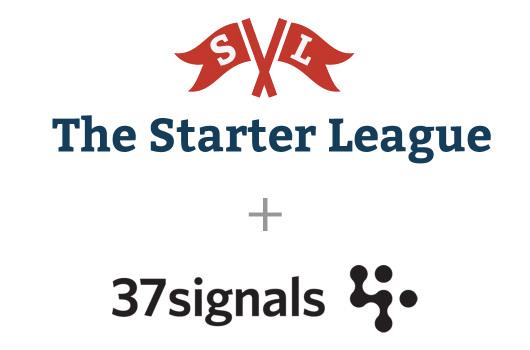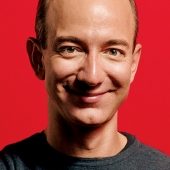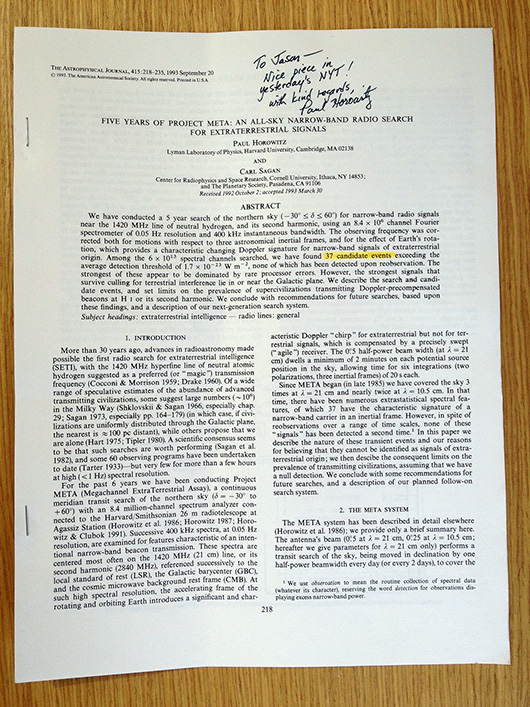
Today we’d like to announce that we’ve bought a stake in The Starter League. This is the only investment that 37signals has ever made in another company.
What is The Starter League?
The Starter League (formerly known as Code Academy) is a small school in Chicago that teaches Rails, Ruby, HTML/CSS, and User Experience Design. The classes are intensive, three months long, two or three days a week, and taught in person. The goal is to go from knowing nothing to being able to build and ship software. Not the best software ever written, but something real, workable, and distinctly your own.
Here’s why we invested.
A little over a year ago I met Neal Sales-Griffin. He came to take a free one-night Ruby course that was being taught at our office. I was in the audience too and Neal was sitting behind me. After the class he introduced himself and we chatted for a bit.
Neal had been trying to learn HTML, CSS, and Rails on his own. He holed up in his house, bought every well-reviewed book on the subject he could find, read them all, and spent countless hours trying to go from no knowledge to just enough knowledge to be able to build the basics of whatever he wanted.
Problem is, he couldn’t. And it’s not because he’s an idiot – he’s anything but an idiot. But he just couldn’t learn from books or online tutorials. They only got him as far as the examples themselves. He wasn’t learning how to think, he was only learning how to put this code in front of that code to build whatever the book or tutorial prescribed.
Further, he didn’t feel like online tutorials or books encouraged him to make a definitive commitment to learn the material. They were too passive. He was looking for immersive. He wanted to go all-in, not just dabble in his free time.
He knew there had to be a better way. But there wasn’t.
So he said fuck it, hooked up with his friend Mike (his co-founder), and built the school that they wished already existed. They tapped Jeff Cohen, recognized as one of the best Rails teachers in the world, to be the first teacher. They were lucky that Jeff just happened to live in Evanston, just outside of Chicago.
They priced tuition for their first 3-month Rails class at $6000. They put up a simple web site and announced that they were accepting applications. And soon enough they had more applications than they had spots. So they added another class (which still wasn’t enough to cover the demand). With nearly $200,000 in tuition revenue, they bootstrapped their school to profitability before the first class even graduated.
Now you can see why we like these guys. Self-starters, bootstrappers, talk walkers. They built something for themselves on the hunch that there were plenty of people out there just like them. And they were right.
Just one year later, from a couple of classrooms in Chicago, they’ve graduated nearly 300 students from over 25 states and 12 countries, generated over $1,000,000 in revenues, kept their company small, stayed focused on quality over growth, and maintained healthy profit margins. Remember: All within a year, from nothing, from nowhere, with no outside funding, from a couple of guys who had an idea, the drive, and the dedication to make it happen.
I’ve been watching Neal and his crew build this thing from the sidelines. I love their opinions about teaching, their point of view, their philosophy about requiring commitment to learn something new, their hustle and hard work, their focus, and their genuine interest in making something that matters. These guys are doing something amazing, and they’ve only just begun.
We also have strong opinions about teaching. Teaching is core to 37signals – from our books REWORK and Getting Real, to our blog Signal vs. Noise, to our many speaking engagements at conferences and universities around the world. We even dedicated about 20% of our office space to a classroom.
So a couple months ago, Neal and I began talking about how we could work together. How could 37signals help The Starter League teach students something they couldn’t learn anywhere else?
After a few lunches and discussions with Neal and Mike, we saw the way forward. We knew how 37signals could help.
So we decided to go all-in and buy a small, non-controlling, non-voting slice of The Starter League. This isn’t the kind of tech investment that you’re used to reading about. We’re not looking to get out, we’re looking to stay in. We’re investing because we want to help these guys build the best place to learn how to ship software and build profitable software businesses. No school like this exists, but it will. The Starter League will be this school.
So that’s where we are today.
Where do we go from here?
This isn’t just a cash investment – it’s a sweat investment, too. Here are the other ways 37signals will be investing in The Starter League:
- 37signals will host an all-new Rails for Designers class in the 37signals office starting this fall. The class will run on Tuesdays and Thursdays from 3-6pm. Tuition will be $6000.
- 37signals will take at least one intern per quarter from the current Starter League class. The internship could be in Rails, design, or whatever other classes are taught.
- 37signals will help The Starter League develop curriculum around 37signals-style practices of software development.
- 37signals will help The Starter League design the best student experience in the business.
- Various people from 37signals will serve as mentors and guest speakers during The Starter League classes.
…and I’m sure plenty more as time goes on.
So if you’re looking to learn how to build a web app from scratch, The Starter League can help you get where you need to be. No experience required, either. Let’s learn together, let’s build together, let’s make great products and profitable companies that last.
We’re now accepting applications for the fall sessions, including the all new Rails for Designers class (hosted at the 37signals office) and Ruby Dojo, the all new advanced Ruby class.
Here we go!
RELATED:




